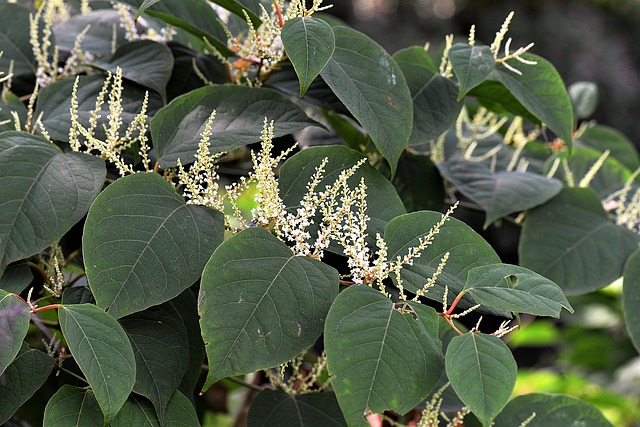
A research study conducted at the National University of Ireland, Galway has highlighted a new way to tackle Japanese knotweed infestations. In the study, researchers discovered that incorrect application of herbicides was ineffective at controlling and stopping the spread of the invasive weed - however if you can remove all moisture from the offending plant material you can return it to the soil without the risk of it rearing its head later down the line.
Why is it so hard to tackle Japanese knotweed?
One of the main reasons why Japanese knotweed is so difficult to tackle is because an infestation can develop from tiny rhizomes in the soil. Many people who attempt DIY Japanese knotweed removals find they have a worse problem on their hands a few months after they treat the knotweed because they've not been thorough during the removal process.
Could this new approach to treating Japanese knotweed be more effective? According to the senior author of the study, Dr Karen Bacon, it
“Japanese knotweed is one of the most invasive plant species in the world and has major negative impact on ecology and biodiversity. The findings of this study that showed virtually no difference between the regrowth of treated and untreated Japanese knotweed samples suggest that herbicide treatment, which is often the most suitable approach to tackle the species, is not always being done effectively.
“We also show clearly that the size of the plant fragment is critical to the initial regrowth, with smaller fragments producing much smaller regrown plants. Additionally, if there are no nodes, there is no regeneration, which may suggest potential management strategies in the future. This also highlights that small infestations and plants should not be viewed with the same concern as larger ones and that rapid management should be a goal of tackling this problematic species.”
“Our finding that the removal of moisture has a 100% success rate on killing Japanese knotweed plants and preventing regrowth after they were replanted also raises an important potential means of management for smaller infestations that are common in urban environments. This requires additional field trials, which we hope to undertake in NUI Galway soon.”
One of the study's key takeaways is that Japanese knotweed is not as indestructible as people may think it is. Effective herbicide treatments, excavation and dehydration are all proving to be effective methods of treating Japanese knotweed and getting rid of it for good!
What treatment methods do we offer?
Here at Taylor Total Weed Control, we don't offer a Japanese knotweed dehydration service, but we do have a number of other treatments that are effective in treating Japanese knotweed, these include:
- Japanese knotweed herbicide treatments
- Excavation programmes
Our Japanese Knotweed Treatment Plans >
If you're unsure which Japanese knotweed treatment is right for you, get in touch with the Taylor Total Weed Control team. They'll help you identify the most appropriate treatment & will get to work ridding your property of Japanese knotweed right away!
Contact Taylor Total Weed Control >
